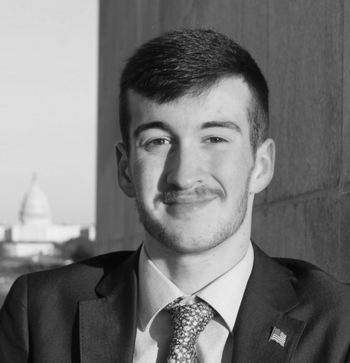SGA discusses resolution to restrict professors' free speech
If passed, a resolution at DePaul University could place professors under investigation or terminate them for using racial epithets in a purely academic manner.
Currently, DePaul University allows professors 'to use racial epithets in the context of academia, such as class readings, even if a student vocalizes their discomfort.'
If passed, a resolution at DePaul University could place professors under investigation or terminate them for using racial epithets in the classroom, even if used in a purely academic manner.
During a Jan 12 SGA meeting, a resolution was discussed focusing on “the intersectionality of racial epithets on other marginalized groups, the resolution’s place in the faculty handbook and the policy’s effect on students,” according to The DePaulia, the school’s student-run newspaper.
The resolution’s primary sponsor is Valerie Johnson, interim associate provost of Diversity, Equity and Inclusion, and it aims to update a current university guideline.
Currently, DePaul University allows professors “to use racial epithets in the context of academia, such as class readings, even if a student vocalizes their discomfort.”
However, Johnson’s resolution, a copy of which was obtained by Campus Reform, would require “all faculty, in instances where verbalizing a racial epithet has a legitimate pedagogical purpose, to substitute the racial epithet with a euphemism (except in the case of theatrical and musical performances),” and charges “the Faculty Handbook Committee to develop language for inclusion in the Faculty Handbook.”
”Racial epithets that have no legitimate pedagogical or performative purpose must be avoided entirely,” the resolution continues.
According to the faculty sponsors of the resolution, “[T]he verbalization of racial epithets in classroom contexts may create a hostile or intimidating environment and may be traumatizing for some students.”
In a statement to Campus Reform, Johnson defended her resolution, saying, “If there is a pedagogical reason to use material, the resolution asks faculty to use a euphemism in classroom discussion rather than the word. Faculty are free to assign books or other course material that include the slur.”
Not everyone is on board with the resolution, however.
Zachary Greenberg, Senior Program Officer with the Foundation for Individual Rights and Expression (FIRE), argued that the resolution violates the academic freedom of DePaul faculty members.
FIRE is the “leading defender of free speech, due process, and academic freedom in higher education,” according to the nonpartisan organization’s website.
“The resolution, if enforced by DePaul, would violate the academic freedom of faculty. Professors have the right to teach academically-relevant material in the class, even if it offends students, administrators, or others,” Greenberg told Campus Reform.
He continued by saying, “Many great works of literature contain racial epithets. Censoring classroom discussions of these works does a disservice to the students seeking a liberal arts education, and faculty seeking to teach text containing racially-charged language.”
Greenberg is not alone in his disapproval of the resolution in question.
[RELATED: UPDATE: Christian student elected to SGA after being denied for quoting the Bible]
Danny Scheer, a DePaul University student and president of the school’s TPUSA chapter, also called out Johnson for “banning language.”
“Teachers should never be barred from using offensive language in an educational context,” Scheer told Campus Reform. “We are all adults in college, but banning language, even contextually, would be treating us as if we are children.”
“If grown adults in college are too insecure and sensitive to hear offensive things, especially in education, then they need to simply grow thicker skin. The solution is to man up -- not to punish others for being more mature,” he concluded.
According to The DePaulia, “The only action for SGA to do now is send their feedback and see what comes of [the resolution].”
Campus Reform reached out to every individual and institution mentioned for comment. This article will be updated accordingly.
Follow Logan Dubil Twitter

